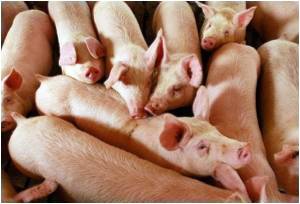
UGA faculty Steve Stice and Franklin West introduced 13 pigs that have shown promise in unlocking the path to new therapies. The pigs recently produced another positive finding: These adult-cell-sourced stem cells don't form tumors in pigs.
"Pluripotent stem cells have significant potential for stem cell therapies," said West, an animal science researcher and assistant professor in the UGA College of Agricultural and Environmental Sciences.
"However, tests in mice often resulted in tumor formation that frequently led to death," he said.
The formation of tumors has raised concerns about the safety of induced pluripotent stem cells, or iPSCs, and cells derived from these stem cells. Until now, all iPSC safety studies have been performed in rodent models.
"Being able to safely use iPSCs without the potential of causing tumors is essential for this promising stem cell therapy to become a viable treatment option," said Stice, a Georgia Research Alliance Eminent Scholar in the College of Agricultural and Environmental Sciences.
Advertisement
"The human stem cells were effective in a rodent model for stroke, but rodent studies are not rigorous enough to start human clinical trials," he added.
Advertisement
This finding opens the door for better animal-sourced tissue for human regenerative medicine such as islet cells that produce insulin for diabetic patients.
Their research results were published in the October issue of Stem Cells.
Source-ANI












